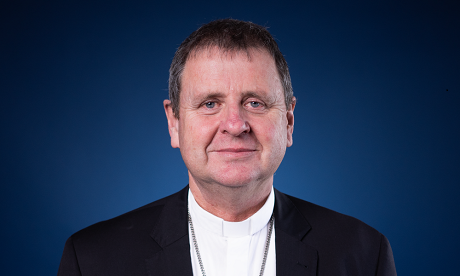New Zealand’s Catholic bishops have welcomed Pope Francis’ approval of changes to the Church’s Code of Canon Law which toughens and extends sanctions against sexual abuse.
Bishop Stephen Lowe, secretary of the NZ Catholic Bishops Conference, says the new code makes it clear that bishops must take decisive action when abuse is reported to them.
“The Church’s Canon Law exists alongside the civil and criminal law of the land.
“This revision …covers the discipline of the Church alongside and beyond the civil law covering, for example, processes for Church discipline in the light of civil prosecution, or for matters that might not meet the criteria for civil prosecution.
“This affirming and widening … is welcome and timely, especially as it comes during the Royal Commission on Abuse in Care, which the Catholic Church strongly supports.”
Bishops
If the bishop does not, or if he fails to report sex crimes to church authorities, he can be removed from office for “culpable negligence”.
There is, however, no punishment foreseen in church law if he fails to report the crime to police.
The changes represent the biggest overhaul of the Catholic Church’s criminal code for nearly 40 years.
They make sexual abuse, grooming minors for sex, possessing child pornography and covering up abuse a criminal offence under Vatican law.
Priests
A big change involves sexual relations between priests and consenting adults.
The Vatican has long considered such relations sinful but consensual, taking the view that an adults’ age will ensure they can accept or refuse consent.
But amid the #MeToo movement and scandals of seminarians and nuns being sexually abused by their superiors, the Vatican has come to realize that adults can be victimised if there is a power imbalance in the relationship.
Therefore, priests who engage in sexual acts with anyone — not just a minor or someone who lacks the use of reason — can be defrocked if they used “force, threats or abuse of his authority” to engage in sexual acts.
The law doesn’t explicitly define which adults are covered, saying only “one to whom the law recognises equal protection.”
Laity
In what CNS describes as “a novelty” lay people can be sanctioned for sex crimes committed by laypeople who hold church offices, founders of lay religious movements or even parish accountants and administrators.
The new law says laypeople can be similarly punished if they abuse their authority to engage in sexual crimes.
Since these laypeople can’t be defrocked, penalties include losing their jobs, paying fines or being removed from their communities.
14 years
The new provisions have taken 14 years of study to prepare. They are in the revised criminal law section of the Vatican’s Code of Canon Law.
Francis says said one aim of the changes was to “reduce the number of cases in which the… penalty was left to the discretion of authorities”.
Victims and critics have been complaining for decades about the outdated laws, saying they were designed to protect perpetrators and were open to interpretation.
Lowe is welcoming the new code, which comes into effect on 8 December.
“The Catholic Church accepts the responsibility to act when abuse occurs in the Church.
“We will act by listening, learning and supporting those affected by abuse.
“We will act swiftly on complaints and follow them through.
“We will hold those to account who have been proven responsible for abuse. This upgrading of Canon Law affirms that.”
Source
